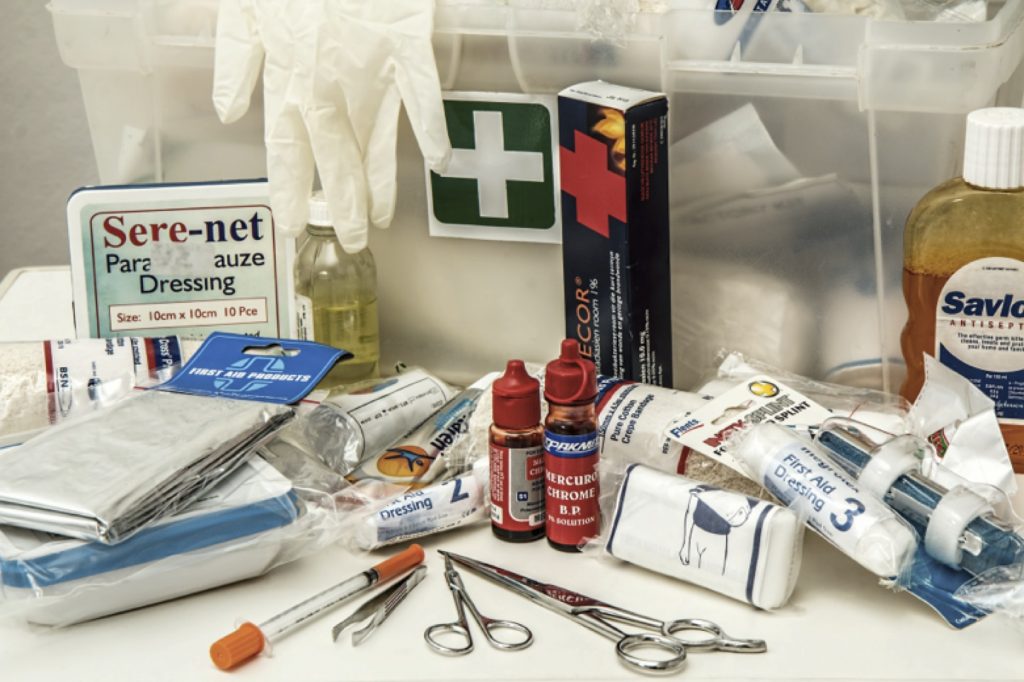5 Types of Financial Support Available If You’re Involved In An Accident & Can’t Work In Your Small Business
Running a small business is no small feat, especially when life throws a curveball like an unexpected accident or other business owner safety risks that stop you from working.

Source – https://unsplash.com/photos/person-holding-band-aid-on-left-hand-rKJoUsqmSs4
In these moments, the absence of a corporate safety net is acutely felt. For small business owners, the stakes are personal and the financial impact immediate. Concerns about sustaining the business, supporting employees, and maintaining personal income become paramount.
With no backup plan like in the case of large corporations, the need for a financial safety net is critical. Let’s explore five financial lifelines that can provide much-needed support and assurance for small business owners facing these tough times.
Type 1: Short-Term Disability Insurance
Imagine you’re temporarily sidelined by an illness or injury. Short-term disability insurance acts as a financial safety net, covering a significant portion of your usual salary for a duration ranging from several weeks to a year.
For small business owners, securing this insurance independently is crucial. It ensures a steady income stream during your recovery, alleviating financial stress and allowing you to focus on your health without the added pressure of immediate business concerns.
Making a claim for short-term disability is fairly straightforward, but in more complex cases an attorney might be required. Make sure to work with a reputed firm, or hire a personal injury lawyer from The Levin Firm for top-notch advice.
Type 2: Long-Term Disability Insurance
Now, if you’re out of the game for a longer haul, long-term disability insurance is your next line of defense.
It’s like a marathon runner, providing coverage for an extended time, maybe even until you hang up your boots at retirement. It’s particularly vital for small business owners whose road to recovery might be a longer journey, ensuring there’s still money coming in.
Accidents that result in long-term disability can create a lot of anxiety, especially for entrepreneurs and small business owners with substantial investments and commitments on the line. Having long-term disability insurance in place is a great way to quell such fears, in case of an accident.
Type 3: Business Overhead Expense Insurance
Here’s something tailor-made for business owners: Business Overhead Expense (BOE) insurance. It’s all about keeping the lights on and the wheels turning in your business when you can’t be there.
It covers the day-to-day expenses like rent, utilities, and even your team’s salaries. It’s the guardian angel for your business’s future and your employees’ livelihoods.
Type 4: Workers’ Compensation Insurance
This one’s usually a must-have if you’ve got people working for you. Workers’ compensation insurance steps in with wage replacement and medical benefits if an employee gets hurt on the job. Sometimes, it’s got your back too, if you’re both the boss and a hands-on part of your business.
Workers’ comp insurance is legally mandated across most states in the US, but even if not, having such a cover does add a lot of value, especially when faced with an unforeseeable incident that leads to injuries, disabilities, or worse.
Type 5: Government Assistance Programs
There’s also a helping hand from the government with various programs designed for folks who can’t work temporarily or permanently because of injury or illness.
These programs differ depending on where you live, but they usually include things like disability benefits and state-run disability support. Getting onto these programs can be a bit of a process, with some boxes to tick for eligibility.
Conclusion
Facing an unexpected hiatus due to an accident is a daunting scenario for any small business owner. However, being equipped with robust financial safeguards such as short-term and long-term disability insurance, BOE insurance, workers’ compensation, and government assistance transforms these challenges into manageable hurdles.
Proactively exploring these options to protect against business owner safety risks isn’t just a business strategy, it’s a vital step in ensuring your livelihood and mental well-being. Early preparation not only fortifies your business against unforeseen setbacks but also anchors your peace of mind in turbulent times.

